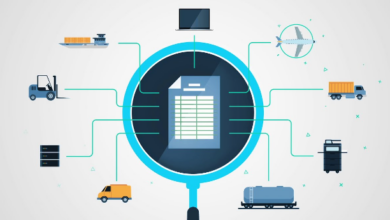Business Software Apps for Small Businesses

Business Software Apps for Small Businesses – In today’s digital age, it’s more important than ever for small businesses to use software applications to streamline their operations, boost productivity, and gain a competitive edge. There are a wide variety of business software apps available, each with its own unique features and benefits. The best apps for your business will depend on your specific needs and budget.
Business Software Apps for Small Businesses

Business software apps for small businesses are digital tools that help streamline operations, boost efficiency, and gain a competitive edge. These applications come in various flavors, each designed to tackle specific tasks and areas within your small business.
Imagine them as digital assistants that handle everything from managing your finances and customers to organizing projects and marketing efforts.
Here are some of the most popular types of business software apps:
- Accounting and invoicing software: This type of software helps you track your income and expenses, create and send invoices, and manage your accounts payable and receivable. Popular options include QuickBooks Online, Xero, and FreshBooks.
- Customer relationship management (CRM) software: CRM software helps you track and manage your customer interactions, sales leads, and marketing campaigns. Popular options include HubSpot CRM, Salesforce, and Zoho CRM.
- Project management software: This type of software helps you plan, organize, and track your projects. Popular options include Asana, Trello, and Monday.com.
- Email marketing software: Email marketing software helps you create and send email campaigns to your customers and prospects. Popular options include MailChimp, Constant Contact, and ActiveCampaign.
- Social media management software: This type of software helps you manage your social media accounts, schedule posts, and track your social media engagement. Popular options include Hootsuite, Buffer, and Sprout Social.
How to Using Business Software Apps for Small Businesses
Here’s a breakdown on how to leverage business software apps for your small business:
1. Identifying Your Needs:
- Start with an audit: Make a list of your current business processes. Identify areas that are time-consuming, repetitive, or prone to errors. This will help pinpoint where software can make the biggest impact.
- Talk to your team: Get input from employees on their pain points and what tasks could be automated or improved with software.
2. Research and Choose the Right Apps:
- Explore different categories: Familiarize yourself with the various types of business software available, such as accounting, CRM, project management, and marketing tools.
- Consider your budget: There are free and paid options. Free trials are often available, so you can test-drive features before committing.
- Read reviews and comparisons: Look for software with good user ratings and functionality that aligns with your needs.
3. Implementation and Training:
- Start small: Don’t try to implement too many apps at once. Choose one or two to focus on initially.
- Data migration: Some software might require transferring existing data (e.g., customer lists) during setup. Ensure a smooth transition.
- User training: Provide proper training for your team to ensure they can utilize the software effectively.
4. Ongoing Use and Integration:
- Encourage software usage: Integrate the software into your daily workflow and promote its benefits to your team.
- Explore integrations: Many business apps offer integrations with other tools, allowing you to connect and share data seamlessly.
- Track and Analyze: Monitor how the software impacts your business. Look for improvements in efficiency, productivity, and other key metrics.
Additional Tips:
- Seek expert help: Consider consulting an IT professional to assist with software selection, implementation, and integration.
- Stay updated: Software updates often include bug fixes and new features. Ensure your apps are updated regularly.
- Feedback and adjustments: As you use the software, identify areas for improvement. Look for updates or consider alternative solutions if needed.
By following these steps, you can effectively leverage business software apps to streamline your small business operations and achieve your goals. Remember, it’s an ongoing process. As your business evolves, your software needs may change too. Be open to adapting and exploring new tools to stay ahead of the curve.
Benefit using Business Software Apps for Small Businesses
Small businesses can reap a multitude of benefits from implementing business software apps. Here’s a breakdown of some key advantages:
Increased Efficiency and Productivity:
- Automation: Repetitive tasks like data entry, invoicing, and scheduling can be automated, freeing up valuable time for employees to focus on more strategic work.
- Improved Organization: Software helps organize information and streamline workflows, making it easier to find what you need and complete tasks quickly.
- Enhanced Collaboration: Team members can work together seamlessly on projects, share documents, and communicate effectively through integrated features.
Better Financial Management:
- Accurate Accounting: Accounting software ensures accurate record-keeping, simplifies financial reporting, and streamlines tax preparation.
- Improved Invoice Management: Create and send invoices electronically, track payments, and automate payment reminders for faster collections.
- Cost Savings: Software can help identify areas to reduce costs, such as by optimizing inventory management or streamlining payroll processes.
Enhanced Customer Relationships:
- Improved CRM: Manage customer interactions more effectively, track leads and sales opportunities, and personalize communication for better engagement.
- Streamlined Communication: Software allows for efficient communication with customers through email, social media, and live chat features.
- Improved Customer Experience: Faster response times, personalized service, and loyalty programs offered through software can significantly enhance customer satisfaction.
Informed Decision-Making:
- Data-Driven Insights: Software provides valuable data and reports to help you track key metrics, analyze trends, and make informed business decisions.
- Improved Forecasting and Planning: Use data to forecast sales, manage inventory levels, and plan for future growth.
- Competitive Advantage: Software equips you with the tools to compete effectively by optimizing processes and offering better customer experiences.
Additional Benefits:
- Scalability: Many business software apps are scalable, meaning they can grow with your business as your needs evolve.
- Improved Security: Software can enhance data security and protect sensitive information from breaches.
- Increased Mobility: Cloud-based software allows you to access your data and applications from anywhere, anytime, on any device.
By leveraging these benefits, small businesses can gain a significant edge, operate more efficiently, and achieve sustainable growth.
Conclusion
In today’s competitive landscape, business software apps have become essential tools for small businesses to thrive. These digital assistants offer a wealth of benefits, from streamlining operations and boosting productivity to strengthening customer relationships and making data-driven decisions.
The key to success lies in identifying your specific needs, choosing the right apps, and implementing them effectively. By following a structured approach and fostering a culture of software usage within your team, you can unlock the full potential of business software apps and propel your small business towards long-term success. Remember, the software landscape is constantly evolving, so stay informed, adapt your approach, and embrace new technologies to stay ahead of the curve.




